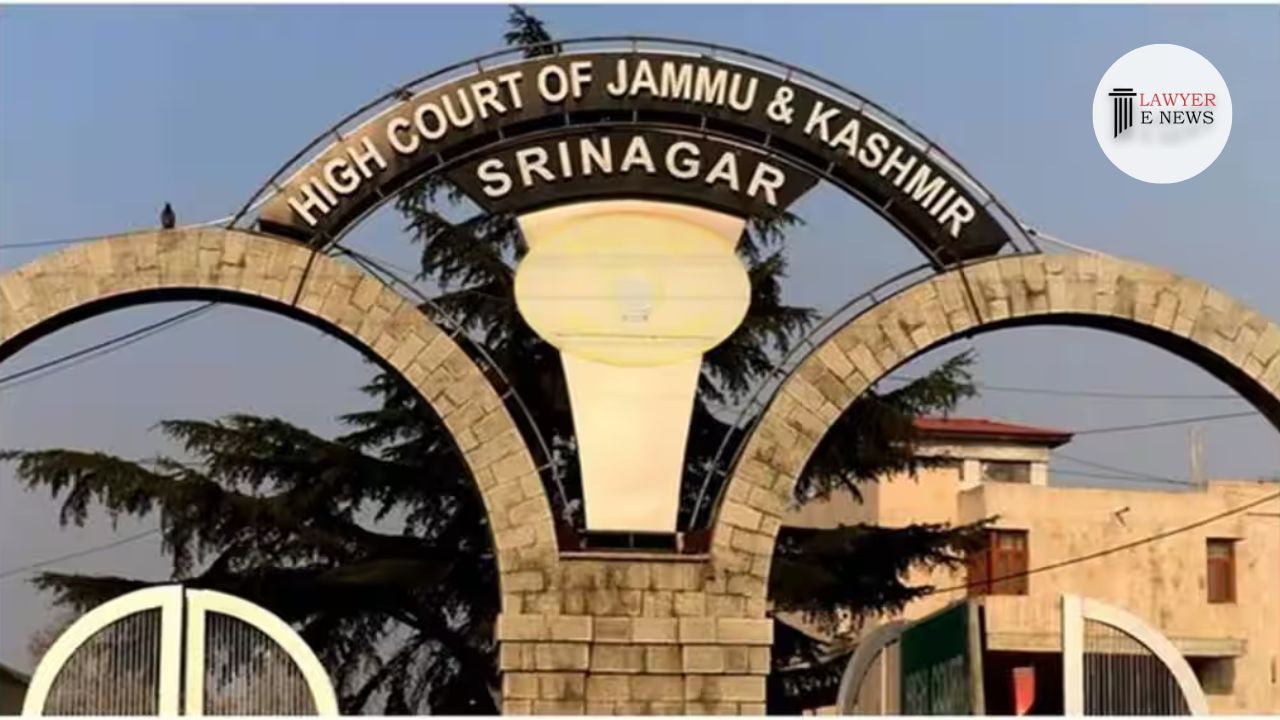-
by Admin
15 February 2026 5:35 AM



High Court of Jammu & Kashmir and Ladakh, presided over by Hon’ble Justice Mohd. Yousuf Wani, has upheld the award of compensation to Sakina Begum, widow of Atta Mohammed Khanji, in a significant ruling that reinforces the liability of principal employers under the Employees’ Compensation Act, 1923. The court dismissed the appeal filed by the State through Executive Engineer PHE Division, Doda, thereby confirming the liability of the appellant as the principal employer for the compensation awarded by the Commissioner Employees Compensation Act (Assistant Labour Commissioner), Doda.
The case, FAO (WC) No. 23/2022, concerns the tragic death of Atta Mohammed Khanji, who was employed by a contractor for loading and unloading irrigation pipes under a contract awarded by the appellant, PHE Division, Doda. On September 4, 2011, while performing his duties, a pipe fell on Khanji’s head, resulting in fatal injuries. At the time of his death, Khanji was earning Rs. 10,000 per month. His widow, Sakina Begum, subsequently filed for compensation under the Employees’ Compensation Act, 1923.
The court emphasized the critical role of Section 12 of the Employees’ Compensation Act, which holds the principal employer liable for compensation to employees engaged by contractors for the execution of work. “The principal employer is liable to pay compensation even when the worker is employed by a contractor,” the judgment stated, affirming the appellant’s liability for the death of Khanji during the execution of the contracted work
The compensation was calculated based on provisions of Section 4 read with Schedule IV of the Act, with interest awarded under Section 4-A(3). The court found no illegality in the award, noting that the learned ALC had appropriately assessed the compensation amount and interest.
Addressing the appellant’s contention regarding the non-joinder of the contractor, the court held that the principal employer remains liable under Section 12(1) of the Act, even if the contractor is not made a party to the proceedings. “The evidence clearly established that the deceased was engaged by the contractor for the appellant’s work, making the appellant liable as the principal employer,” the court observed.
This ruling reinforces the legal framework that ensures principal employers are held accountable for compensating employees engaged by contractors, emphasizing the social welfare objectives of the Employees’ Compensation Act. The decision is expected to prompt principal employers, particularly in government and semi-government projects, to include indemnification clauses in contracts with contractors, ensuring smoother and more efficient compensation processes for workers or their dependents.
utice Wani noted, “In light of the beneficial nature of the Employees’ Compensation Act, the provisions should be interpreted to secure compensation to employees, even if they are employed through contractors.” This interpretation underscores the act’s intent to protect workers’ rights and provide timely compensation in the event of workplace accidents.
The High Court’s dismissal of the appeal and affirmation of the award of compensation with interest highlights the judiciary’s commitment to upholding the rights of workers and their dependents. This landmark decision serves as a critical reminder of the principal employer’s responsibilities under the Employees’ Compensation Act, 1923, ensuring justice for those affected by workplace accidents.
Date of Decision: July 16, 2024
State through Executive Engineer PHE Division, Doda vs. Sakina Begum
